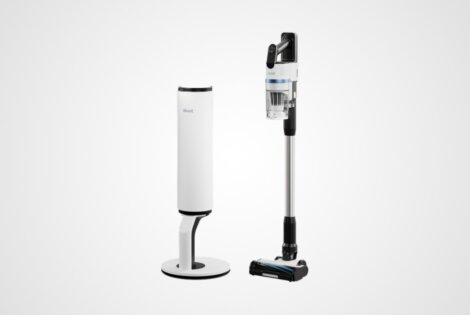The number of businesses embracing cloud storage in 2023 is growing rapidly. Most companies making this jump are convinced cloud computing offers more benefits than in-house data centers.
Despite that, a section of entrepreneurs has doubts about the security of cloud storage. And you can’t really blame them. Cybersecurity is a major threat to modern businesses.
In this article, we’ll talk more about the security measures cloud storage providers use to keep business files secure. We’ll explain why cloud storage is better than most alternatives and how you can protect your data while using cloud computing solutions.
Let’s dive right in.
Data Encryption
The best cloud storage providers encrypt your data before it’s stored in the cloud. Encryption transforms your data into an unreadable format. That way, no one can decipher your company’s files even if they stole your smartphone or office desktop.
Data encryption is one of the most effective ways to secure information. After all, no one can use your data if they can’t read it. These days, it’s compulsory for companies that handle data to encrypt clients’ data using the latest data encryption techniques such as SSL.
Beyond data encryption, cloud storage providers also use multi-factor authentication, real-time monitoring, and segmentation to keep your company files secure.
Multi-factor authentication requires more than one piece of evidence before someone gets access to your cloud storage account. Think of email verification coupled with a password.
Micro-segmentation helps minimize damage in case of a cyberattack. On the other hand, real-time monitoring helps thwart potential attacks before they even take place.
Regular Security Updates
Most people ignore notifications about updating software and apps. Yet, software updates are incredibly necessary for keeping business files safe. If you pay for cloud storage, you will never have to worry about security updates anymore.
Cloud storage companies can’t afford to mess around with security updates. These companies understand that any security breach could mean the end of their business. And so, they keep their systems updated and secure all the time.
The best part is that cloud storage providers use the most advanced security protection methods. This dissuades hackers from targeting them. Instead, cyber attackers prefer to attack small business owners—companies with older, less effective security measures.
Firewalls
A firewall is like a gateway that determines who can access a website, app, or computer system. Firewalls use a set of pre-determined rules to identify and stop malicious attacks from hackers.
Most modern cloud storage companies have firewalls that protect your data from unwarranted traffic. In other words, a firewall is like a security guard. It stops the bad guys from attacking you whenever you want to access your data remotely.
Although firewalls are excellent at identifying suspicious web traffic, they can’t work alone. They work in conjunction with other security methods like data encryption, updating software, and real-time monitoring.
AI-Powered Security Solutions
Artificial Intelligence has many use cases, from automation to personalized shopping. In the cloud storage space, providers have a new job for AI—monitoring and identifying security threats.
AI is a lot more effective in monitoring patterns and responding to security threats compared to humans. An AI algorithm can monitor the entire cloud system in seconds, helping detect threats almost instantly.
Another benefit is that an algorithm can contain a threat immediately. It does not have to wait for approval or verification by a human. Speaking of which, AI rarely makes errors, at least not the common mistakes humans make constantly.
Because AI algorithms can be modeled to predict future threats, companies can reduce their security budgets in the long term.
Multiple Data Backups
You probably know this. Cloud storage companies store your data through physical servers located in the US, Europe, or elsewhere around the world. These servers are vulnerable to fire accidents, floods, or earthquakes.
To ensure your company’s data isn’t lost in case of unexpected damage, cloud computing companies back up your data in multiple servers. If one server location gets damaged, your data isn’t lost.
By comparison, your in-house server room probably doesn’t come with a backup. If it gets damaged, you risk losing all your data. Against that backdrop, it’s essential to store some or all of your data on the cloud.
You can always keep your local server room intact. But have a backup plan. This way, your company doesn’t get affected in case of a cyberattack or any other threat.
Independent Security Testing
The best cloud computing companies go to long lengths to ensure your company’s data stays safe. Not only do they hire IT staff and deploy best-in-class security software, but they also work with independent security auditors.
Third-party auditing helps confirm whether a cloud storage company is indeed secure or has vulnerabilities. Auditors check for malware, suspicious web traffic, and the quality of security software used.
In doing so, third-party auditors help both the cloud storage companies and their clients. The providers get to know if they have safe systems or whether there are areas they should improve.
On the contrary, potential customers get an independent review of a cloud storage provider. They discover how the company protects its data and whether it’s a recommended provider.
Zero-Knowledge Authentication
Not to be confused with multi-factor authentication, zero-knowledge authentication protects access to your data by ensuring no one else besides you can access the information.
You see, some cloud storage companies store encryption keys. They can access your data if they want to. Zero-knowledge authentication means the cloud storage company does not store user passwords and encryption keys.
They can’t hijack your data because your data is encrypted and only you have rights to the key access password. As mentioned, not every cloud computing provider offers this security measure. So, find companies that do.
Content Control
Another way cloud storage providers keep your data safe is by helping you control access to your company’s files. Let’s say you share a document with a junior employee. You can decide that they will view the document but not alter its content.
Content control protects your company from data leakage or damage by deciding who gets access to what data. You can use passwords and expiry dates to further limit access to your shared content.







